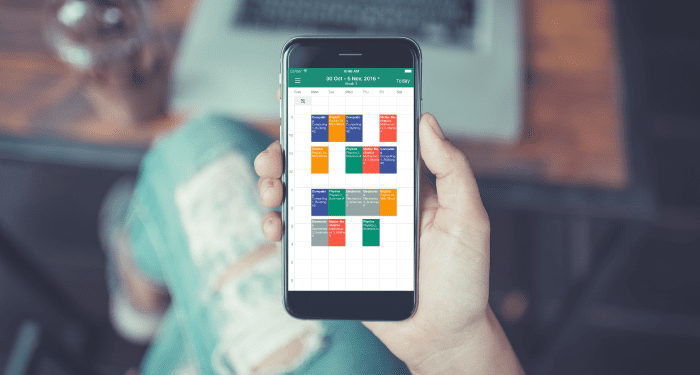- Best Apps For Law School Degree
- Best Apps For Law School Students
- Best Note Taking Apps For Law School
- Best Apps For Law School Majors
- Best Ipad Apps For Law School

Jan 12, 2016 Headspace – Learn to Meditate from a Pro. We’ve discussed meditation as a way to improve focus, mindset, attitude and mental health in law school. Well, Headspace is a free app for the meditation novice that isn’t at all scary or off-putting. In just 10 minutes per day, you can learn to quiet the noises around you and put those ruminating. . Research databases: Law students can conduct legal research on the go with the help of HeinOnline, Lexis Advance and WestLawNext, the mobile apps for three popular databases. All three apps are.
If only there were a secret formula for getting accepted to law school, you could pick the perfect extracurricular and poof – law school admissions committees will fall in love.
Aug 30, 2017 Ability to choose the best bid. Sometimes users can fail to find a bid that suits them. This app is available to iPhone users for free. Law dictionary is an app that makes the law easy to read and understand. Simply type in the word you want to look up. Now, the only thing left to do is pick your law school out of the pile of admissions offers flooding your mailbox. Here you will find detailed information on the nation's best law schools to help you choose. Download the fun/ fast/ free LSATGrowth app for mobile LSAT practice on iOS and Android. Related: How to Have an Amazing Law School Visit: Tips and Questions You Need to Ask. Tip 9: Polish it up. By the time you apply to law school, you’re probably accustomed to writing at the collegiate level. But it’s good to be reminded to send in your very best work with your law school applications.
Best Apps For Law School Degree
Sorry to burst the bubble, there is no secret formula. Committees are seeking academically qualified candidates who have a pulse outside the classroom.
So what activities should you do? First of all, don’t make decisions based upon what you think admissions committees want you to do. Do what you enjoy. Find your passions and then highlight the characteristics you have developed and showcased along the way.

Best Apps For Law School Students
How do you answer the question on extracurricular activities?
Well, regardless of whether you have no outside interests, or a thousand different hobbies, utilize the opportunity to highlight certain qualities when asked this question.

Here are some do’s and don’ts for this part of your law school application:
- DON’T exaggerate your commitment. Be truthful throughout your application.
If you tutored for an hour a week for a year, say that and not anything more. Most admissions committees are not going to check on this, but if you are caught lying about any part of your application, you are almost certain to be rejected or have an offer of admission revoked. - DO mention leadership positions that you have held in a volunteer role.
President of the Latin Club, co-chair of a fundraising event, or the instigator of your neighborhood clean-up day – these all count. You want to show that you have given back to your community on a significant level, and that you take this responsibility seriously. Emphasize your leadership role and the impact you have had, as well as any other skills that are relevant to your ability to succeed as a law student and attorney. Examples of these skills include public speaking, writing, and organizational skills. - DON’T list every single public service activity you have ever done.
If you served dinner to the homeless three years ago at Thanksgiving, well done, but this one-time event doesn’t belong on the list. It may make the committee ask the question, “why just one year?” However, if you spent your summer canvassing low-income neighborhoods and encouraging people to register to vote, you should mention it. Pick the significant commitments, and talk about them. - DO cross-reference, but don’t repeat.
You may decide to include elements of your extracurricular activity list as part of your personal statement. You can still list the activities on your application, but don’t list everything on your application in your essay. A little overlap is fine; duplication is not. - DO mention any hobbies or interests that contribute to your diversity as a candidate for admission.
If you play the cello or teach tile-mosaic classes or spend every free minute of your spare time spelunking, you may add an interesting dimension to your class. These hobbies make you a more unique and interesting potential addition to the class. - DON’T worry if your volunteer work or hobbies have nothing to do with law.
If you worked as a volunteer for Legal Aid, by all means say so. But if you haven’t, any kind of serious commitment to outside interests is valued.
What if you really and truly have no extracurricular activities or interests?
If you are reading this far enough in advance, you can always start now. Volunteer opportunities are around every corner in every community. Choose something near and dear to your heart, and make a commitment to it. Admissions committees want to know that the people they are admitting to their school are community- and civic-minded people who value time as much as money, and are willing to give generously to their community. Committees are seeking applicants who have developed a “work-life balance” and have figured out how to cope with the stress of school or work. Committees are also seeking to establish how an applicant will connect with the broader law school community and take advantage of the opportunities the institution provides.

Still not sure what extracurricular activities and interests you should or shouldn’t include on your application and personal statement? Accepted can help! Our staff of experienced editors can guide you along the way, offering sound advice as you work your way through the law school application maze.
Christine Carr is a Harvard graduate with over 15 years of admissions experience, including nine years as Associate Director of Admissions at Boston University School of Law. She has read over 10,000 personal statements and counseled thousands of prospective applicants through the application processBest Note Taking Apps For Law School

Best Apps For Law School Majors
Want Christine to help you get Accepted? Click here to get in touch!Related Resources:
- 5 Fatal Flaws to Avoid in Your Law School Personal Statement, a free guide
- Different Dimensions of Diversity, a podcast episode
Best Ipad Apps For Law School
| USNWR Rank | Law School | Acceptance Rate | Median LSAT | Median GPA | Tuition |
|---|---|---|---|---|---|
1 | Yale Law School | 9.4% | 173 | 3.9 | $54,650 |
2 | Harvard Law School | 15.6% | 173 | 3.88 | $53,308 |
3 | Stanford Law School | 10.3% | 171 | 3.87 | $52,530 |
4 | Columbia University Law School | 21.3% | 171 | 3.7 | $57,838 |
4 | University of Chicago Law School | 19.6% | 170 | 3.9 | $53,361 |
6 | New York University School of Law | 31.4% | 170 | 3.72 | $54,678 |
7 | University of Pennsylvania Law School | 17.3% | 169 | 3.89 | $54,992 |
8 | University of Virginia School of Law | 16.8% | 169 | 3.87 | $47,900 |
9 | University of California, Berkeley School of Law | 17.8% | 167 | 3.78 | $48,058 |
10 | Duke University School of Law | 19% | 169 | 3.77 | $53,596 |
10 | University of Michigan Law School | 27% | 168 | 3.71 | $49,784 |
12 | Northwestern University School of Law | 26.3% | 168 | 3.75 | $54,764 |
13 | Cornell Law School | 29.9% | 167 | 3.66 | $57,351 |
13 | Georgetown University Law Center | 26.3% | 168 | 3.74 | $20,890 |
15 | University of Texas School of Law | 30.3% | 166 | 3.68 | $32,376 |
16 | University of California, Los Angeles School of Law | 28.2% | 169 | 3.79 | $45,226 |
16 | Vanderbilt University Law School | 34% | 167 | 3.74 | $48,190 |
18 | Washington University School of Law | 24.3% | 166 | 3.69 | $49,945 |
19 | Emory University School of Law | 32% | 165 | 3.75 | $48,174 |
20 | The George Washington University Law School | 41.5% | 165 | 3.71 | $49,840 |
20 | University of Minnesota Law School | 30.8% | 164 | 3.79 | $40,058 |
20 | University of Southern California, Gould School of Law | 29.3% | 166 | 3.7 | $55,023 |
23 | University of Alabama School of Law | 24.6% | 164 | 3.86 | $20,770 |
24 | William & Mary Law School | 29.5% | 164 | 3.73 | $29,000 |
24 | University of Washington School of Law | 26.2% | 164 | 3.64 | $31,983 |
26 | Notre Dame Law School | 28.1% | 163 | 3.6 | $48,730 |
27 | Boston University School of Law | 34.5% | 165 | 3.67 | $45,786 |
27 | University of Iowa College of Law | 52% | 161 | 3.59 | $28,047 |
29 | Indiana University Bloomington, Maurer School of Law | 52.6% | 162 | 3.8 | $30,526 |
29 | University of Georgia School of Law | 33.3% | 163 | 3.69 | $18,740 |
31 | University of Wisconsin Law School | 44.2% | 161 | 3.58 | $21,365 |
31 | Wake Forest University School of Law | 45.4% | 162 | 3.57 | $41,364 |
31 | Arizona State University, Sandra Day O'Connor College of Law | 39.1% | 162 | 3.54 | $26,268 |
31 | Ohio State University, Michael E. Moritz College of Law | 45.4% | 160 | 3.65 | $28,033 |
31 | University of North Carolina School of Law | 44.7% | 161 | 3.5 | $22,215 |
36 | Boston College Law School | 34.9% | 164 | 3.61 | $45,231 |
36 | Brigham Young University, J. Reuben Clark Law School | 35.6% | 161 | 3.77 | $11,280 |
36 | Fordham University School of Law | 37.9% | 163 | 3.52 | $50,996 |
36 | University of California, Davis School of Law | 52.4% | 162 | 3.55 | $47,286 |
40 | University of Arizona James E. Rogers College of Law | 40.3% | 160 | 3.57 | $24,396 |
40 | University of Illinois College of Law | 45.5% | 160 | 3.56 | $41,226 |
42 | Southern Methodist University, Dedman School of Law | 33.4% | 162 | 3.63 | $46,519 |
43 | University of Colorado School of Law | 38.1% | 162 | 3.58 | $31,738 |
43 | Washington and Lee University School of Law | 38.1% | 164 | 3.51 | $44,707 |
45 | Florida State University College of Law | 41.9% | 159 | 3.51 | $20,632 |
46 | George Mason University School of Law | 31.2% | 161 | 3.55 | $25,351 |
46 | Tulane University School of Law | 46% | 160 | 3.39 | $47,080 |
46 | University of Maryland School of Law | 44.1% | 159 | 3.53 | $27,174 |
49 | University of Utah, S.J. Quinney College of Law | 45% | 159 | 3.51 | $23,489 |
49 | University of Florida Levin College of Law | 50.4% | 160 | 3.55 | $21,181 |